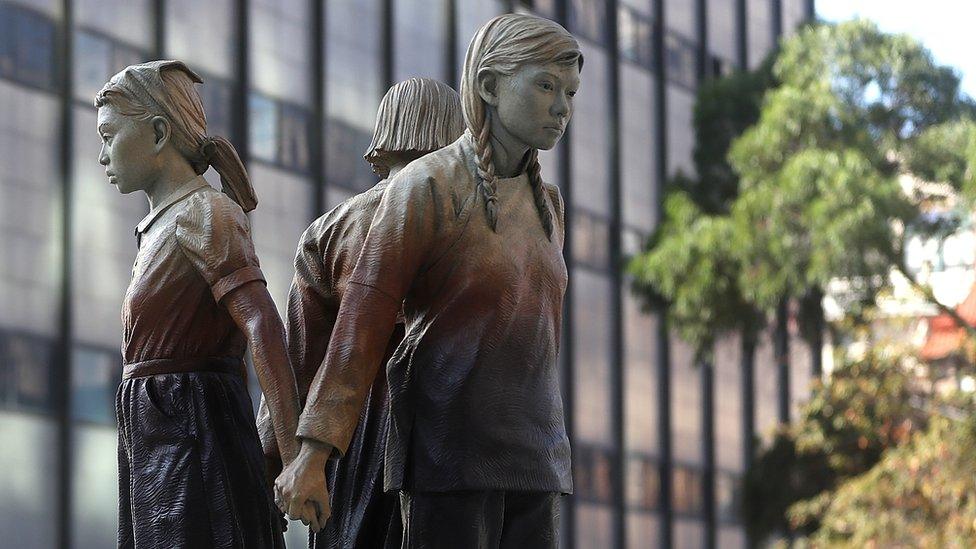San Francisco accepts 'comfort women' statue
- Published

The controversial statue depicts three young women from Korea, China and the Philippines
San Francisco has officially accepted a statue representing the "comfort women" forced to work as sex slaves for Japanese soldiers during World War Two.
The work depicts three young women - from Korea, China and the Philippines - standing in a circle holding hands.
Similar statues around the world have angered Japan. San Francisco's Japanese sister city, Osaka, has already threatened to cut ties over the move.
It's estimated that some 200,000 women were kept in these military brothels.
Some of the women were willing, others were lured with the offer of paid work as cooks or cleaners .
They are thought to have been mainly from Korea, but also from China, Indonesia, the Philippines, and Taiwan.
The statue in San Francisco was set up privately in late September, but on Wednesday mayor Edwin Lee signed confirmation that the city council officially accepted the monument.
Kim Hak-sun was the first woman to speak out about her experiences as a comfort woman
An inscription on the side of the statue reads: "This monument bears witness to the suffering of hundreds of thousands of women and girls euphemistically called 'Comfort Women,' who were sexually enslaved by the Japanese Imperial Armed Forces in thirteen Asian-Pacific countries from 1931 to 1945".
A fourth figure stands nearby, depicting an elderly woman meant to be Kim Hak-sun, the first woman to speak out about her experience during the Japanese occupation of Korea during the war.
Similar memorials have been placed elsewhere, most notably in South Korea.
In January, Japan temporarily withdrew its ambassador to South Korea over a new statue outside the Japanese consulate in South Korea's port city Busan. A statue also stands outside Japan's consulate in Seoul.
Japan says the statues in South Korea violate a 2015 deal, which agreed that Japan's reparations would "finally and irreversibly" resolve the issue - but many Koreans view that settlement as inadequate and the issue continues to plague ties.
But there are other statues in the United States and Canada as well as in Australia, which saw its first "comfort woman" statue set up in 2016 - these have caused varying degrees of tension.
In this case Osaka mayor Hirofumi Yoshimura wrote to his San Francisco counterpart to protest against the statue and said he might end the sisterhood between the two cities, which dates back to 1957.
- Published10 July 2017
- Published20 December 2016